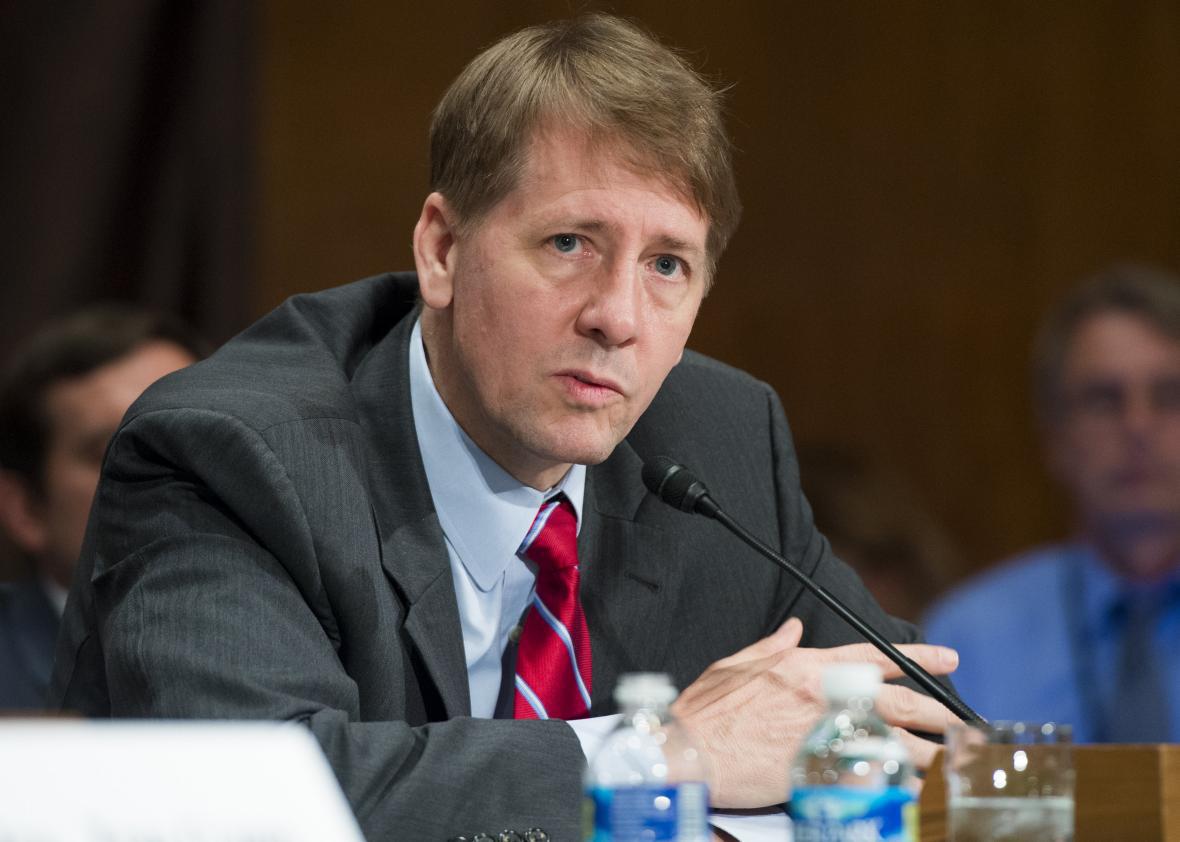One of the last remaining Obama appointees in the world of banking regulation announced Wednesday he will step down as the head of the Consumer Financial Protection Bureau, likely allowing the Trump administration to remake it as a more industry-friendly agency.
Richard Cordray said he planned to step down by the end of the month, without giving a clear reason. According to the New York Times, Cordray was “widely expected” to step down to run for Ohio’s governor seat.
The CFPB, created under Dodd-Frank in response to the 2008 financial crisis, has angered Trump and Republicans with its aggressive regulations and rules, and many in the party voiced frustrations with Cordray himself. In the conflict between conservatives in Congress and the CFPB, the agency fined big banks millions. Recently, Congress blocked a CFPB rule that would have allowed customers to band together to file class-action lawsuits at banks.
According to the Washington Post:
With Cordray’s departure, the regulatory structure put in place by the Obama administration in the wake of the global financial crisis has been nearly entirely replaced.
Under new Republican leadership, the agency is likely to focus less on writing new rules for the financial industry or extracting big fines, industry experts say. Instead, it may work more closely with the banking industry, they said. The CFPB has been working on rules concerning debt collectors and bank overdraft fees, for example, but those efforts are likely to stall under the new leadership, said industry officials.
As Bryce Covert wrote in Slate this year, the GOP’s agenda to undo or undermine financial regulations put into place after the 2008 recession stands out because Republican congressmen “have actually made great progress” on this front. Cordray’s exit, which was scheduled to happen next summer, will likely speed this progress up.
